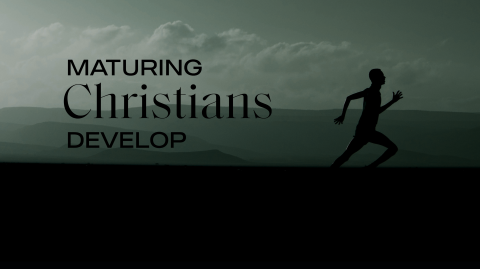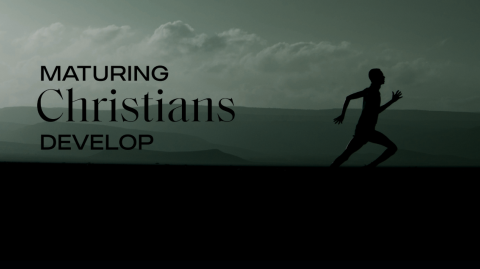 "So will it be with the resurrection of the dead. The body that is sown is perishable, it is raised imperishable; it is sown in dishonor, it is raised in glory; it is sown in weakness, it is raised in power; it is sown a natural body, it is raised a spiritual body." 1 Corinthians 15:42-44
"So will it be with the resurrection of the dead. The body that is sown is perishable, it is raised imperishable; it is sown in dishonor, it is raised in glory; it is sown in weakness, it is raised in power; it is sown a natural body, it is raised a spiritual body." 1 Corinthians 15:42-44
Paul tells us, "Flesh and blood cannot inherit the kingdom of God, nor does the perishable inherit the imperishable" (1 Cor. 15:50). Our present bodies cannot handle the glory that God will pour out on us, so God must transform us radically. He makes this plain by four statements contrasting our mortal bodies with our resurrection bodies: “So is it with the resurrection of the dead. What is sown is perishable: what is raised is imperishable. It is sown in dishonor; it is raised in glory. It is sown in weakness; it is raised in power. It is sown a natural body; it is raised a spiritual body.” (1 Cor. 15:42-44)
Perishable means our bodies on earth are continually decaying and heading toward our destination of death. The buried, rotting corpse is the final proof of that lifelong process. Adam was condemned to sink down into the dust from which he came (Gen. 3:19). Our bodies are in bondage to decay, just like the cursed world around us (Rom. 8:21). Imperishable means our resurrection bodies will have no process of decay but will be eternally renewed by the principle of life continually flowing from almighty God. We will never die, so our time there will be limitless. Furthermore, our physical capabilities will in no way diminish as eternity unfolds. In this world, our eyes become dim with age. But our resurrected eyes will forever remain perfectly able to drink in the beauty of New Jerusalem.
Dishonor means that the process of death is repulsive, stripping humanity of its visible dignity. The sights, sounds, and smells of an ICU or a nursing home are all the evidence we need for how dishonored the dying body is. And how much more disgusting is a corpse that has been rotting in the earth or decomposing in the sea? Glory captures the radiance of the resurrection body. As Christ said so powerfully, "Then the righteous will shine like the sun in the kingdom of their Father" (Matt. 13:43). Also, Daniel 12:3 says, "Those who are wise shall shine like the brightness of the sky above; and those who turn many to righteousness, like the stars forever in heaven, and ever." This is what I mean by saying that, in heaven, the redeemed will both see glory and be glory.
Weakness refers to the body's powerlessness in this world. We get tired easily, need to eat to regain our strength, and will have no power to fight off the disease that finally kills us. No body is weaker than a corpse about to be buried. Power will characterize the resurrection body…. limitless power! That does not necessarily mean we will be like Superman, able to fly or leap tall buildings in a single bound. Rather, like Isaiah 40:31 puts it, "[We] shall run and not be weary, [we] shall walk and not faint."
"This will be our resurrection body: imperishable, glorious, powerful, and spiritual: a body perfectly prepared for the universe of God’s glory we will experience for all eternity!"
Natural refers to the body we have known in this present age of disease, pain, and death. Spiritual is a word that stretches the imagination to the breaking point when Paul speaks of a "spiritual body." I think Jesus's own amazing resurrection body gives us some sense of what this could mean. He had flesh and bones, could be touched physically, and could eat broiled fish (Luke 24:39-43). But he could also pass through the stone walls of the tomb and through locked doors of the upper room. He could suddenly disappear, then reappear elsewhere.
So, this will be our resurrection body: imperishable, glorious, powerful, and spiritual: a body perfectly prepared for the universe of God’s glory we will experience for all eternity!
Excerpt from "The Glory Now Revealed" by Andrew M. Davis. To purchase click Here.


